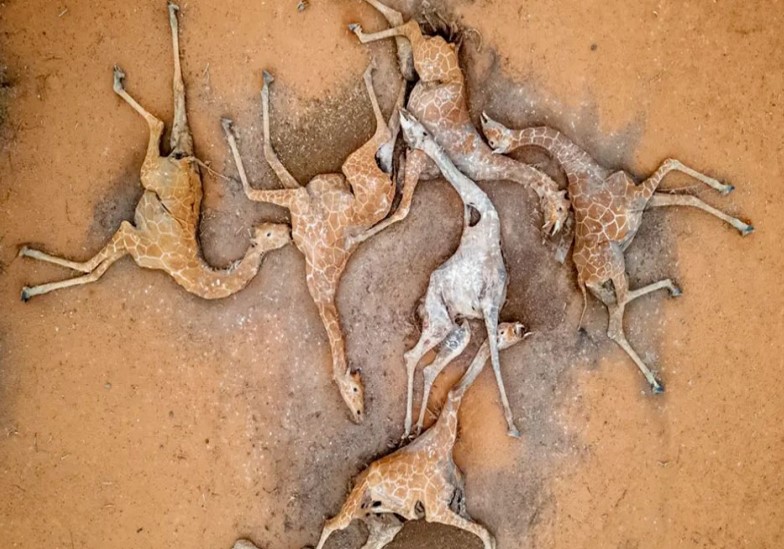Extinction Rebellion (XR) Gairloch latest Climate Crisis Newsletter had a review of the COP 15 Biodiversity summit held in Montreal in December 2022, which we are republishing below. It is available on the XR Scotland website. We hope to publish more material on the COP15 Biodiversity event on the ecosocialist.scot website in the near future, and welcome comments and debate.
XR Gairloch Climate Crisis Newsletter No 126 – Editorial
Yet another UN COP Summit last minute deal, but was it worth it……
As is usual with UN COP summits it goes down to the wire and the COP15 Biodiversity summit was no different. A deal was eventually done at 3.30 am on Monday morning, but was it? The Democratic Republic of Congo (DRC), who are one of the biodiverse countries in the world, said it didn’t agree with the document but the COP president just overruled them and declared the deal was done anyway. The DRC were later persuaded by Brazil and Indonesia ( another two major biodiverse countries) to back down and sign the agreement.
So did that mean the deal done at COP15 was a major success? No unfortunately not.
Since the Biodiversity COP summit was first established some 30 years ago, they have failed to accomplish any meaningful gains in its mission. In fact a recent U.N. report showed that not a single target from the summit’s previous 2010 agreement has been met.
This year nearly 5,000 delegates from 196 countries around the world gathered during the December 7-19 summit aiming to secure a new deal: a 10-year framework aimed at saving Earth’s forests, oceans and species before it’s too late.
A last minute deal was agreed which featured 23 action-oriented targets to be delivered by 2030 of which the most important was probably the target of protecting 30% of land and sea, but unfortunately the agreement was thought by many environmentalists to be weak and flawed, some of these being:
- The targets and actions are not legally binding
- Weak on how it is implemented and monitored. The agreement is doomed without clear mechanisms for implementing targets, Similar factors were widely blamed for the failure of the last 10-year biodiversity deal, adopted in 2010 in Aichi, Japan, which was unable to achieve nearly any of its objectives.
- It is said to be the biodiversity equivalent to the Paris 2015 agreement for Climate Change and that has been a failure.
- The use of weak wording like -“eliminate, phase out or reform incentives, including subsidies harmful for biodiversity” and “progressively reducing” these subsidies
- Weakened language regarding corporate and non-state disclosure. During COP15, almost 500 companies voiced support for mandatory disclosure of nature-related impacts through the Business for Nature group’s “Make it Mandatory” campaign. However, the final text does not require mandatory disclosure, meaning many corporates will need to involve themselves with voluntary disclosure initiatives.
- Vague, unambitious language on halting species extinctions at some point before 2050, instead of 2030.
‘Flawed but a turning point for humanity’: Green groups react to COP15’s global biodiversity agreement. Read article.
The fact is human civilisation depends on a healthy and diverse natural environment to survive and flourish. It’s a tragedy that we’re living in one of the most nature-depleted countries in the world—and a travesty that the impetus to turn this around just isn’t there. Those with the power to make change are moving too slowly and are pushing the disaster down a road that’s rapidly running out.
UK accused of hypocrisy over environment protection targets. Read Article.
Scotland’s rarest animals face being wiped out warns expert. Read article.
Is “Nature Positive” the new “Carbon Neutral” of biodiversity greenwash, and why were fossil fuel delegates at COP15?………
What does ‘nature positive’ mean – and can it rally support to stop biodiversity loss? Read article.
Humanity has become a weapon of mass extinction……….
The UN biodiversity talks, held every two years, have never garnered the same attention as the world’s main environmental focus – the annual UN talks on climate change.
UN Secretary-General Antonio Guterres has slammed multinational corporations for turning the world’s ecosystems into “playthings of profit” and warned failure to correct course would lead to catastrophic results. “We are treating nature like a toilet,” Guterres said. “And ultimately, we are committing suicide by proxy,” with the effects felt on jobs, hunger, disease and death.
As the human population tops 8 billion, the rest of life is being decimated. We’ve destroyed two-thirds of the rainforests, half the coral reefs, and a million species are now facing oblivion, one-third of all land is severely degraded and fertile soil is being lost, while pollution and climate change are accelerating the degradation of the oceans.
Species are vanishing at a rate not seen in 10 million years. As much as 40 percent of Earth’s land surfaces are considered degraded, according to a 2022 UN Global Land Outlook assessment.
196 governments signed the agreement to protect 30% of the planet by 2030 — but scientists say it isn’t enough. For nature to regenerate, and to save our planet’s life-support systems, we have to protect half the Earth, inspired by EO Wilson’s Half-Earth project – and we need a global treaty to enforce action. Currently, 17% of terrestrial and 10% of marine areas are protected so 30% will be a significant increase if it is achieved.
Half Earth Project. See site.
Ultimately, this is about our survival. Even as the planet withers, the chainsaws, diggers, and polluters are charging ahead, pulverising the planet into a barren, lifeless tundra. All in the name of economic growth .
Scientists have warned that with forests and grasslands being lost at unprecedented rates and oceans under pressure from pollution and over-fishing, humans are pushing the Earth beyond safe limits. This includes increasing the risk of diseases, like SARs CoV-2, Ebola and HIV, spilling over from wild animals into human populations.
What happens to the natural world, happens to us all. We are not separate from nature; we are part of it, connected to the very trees, rivers, and oceans that are being decimated.
The COP15 summit in Montreal was regarded as a “last chance” to put nature on a path to recovery. Let us hope that the human race stands by what it agreed at the summit and improves on it to ensure we are not putting a death sentence on nature and ourselves.
Reprinted from XR Gairloch Climate Crisis Newsletter No 126 Climate-Crisis-News-Letter-No-126-xr-gairloch.pdf (xrscotland.org)



